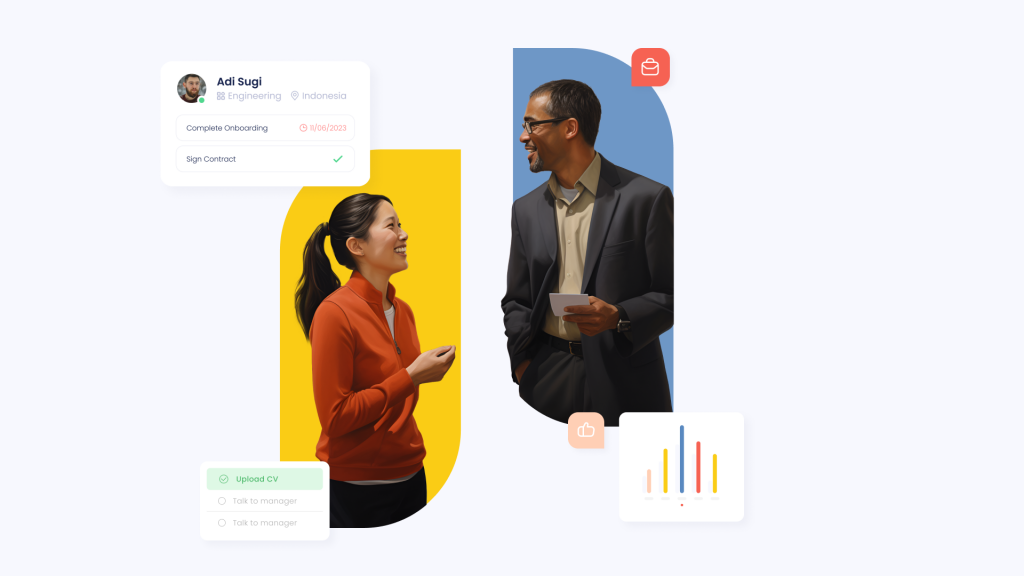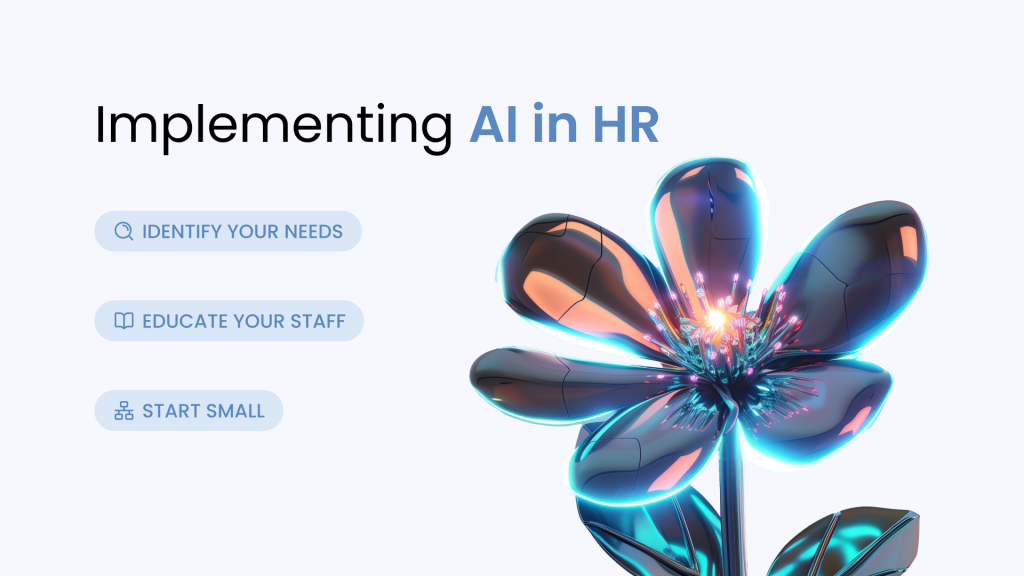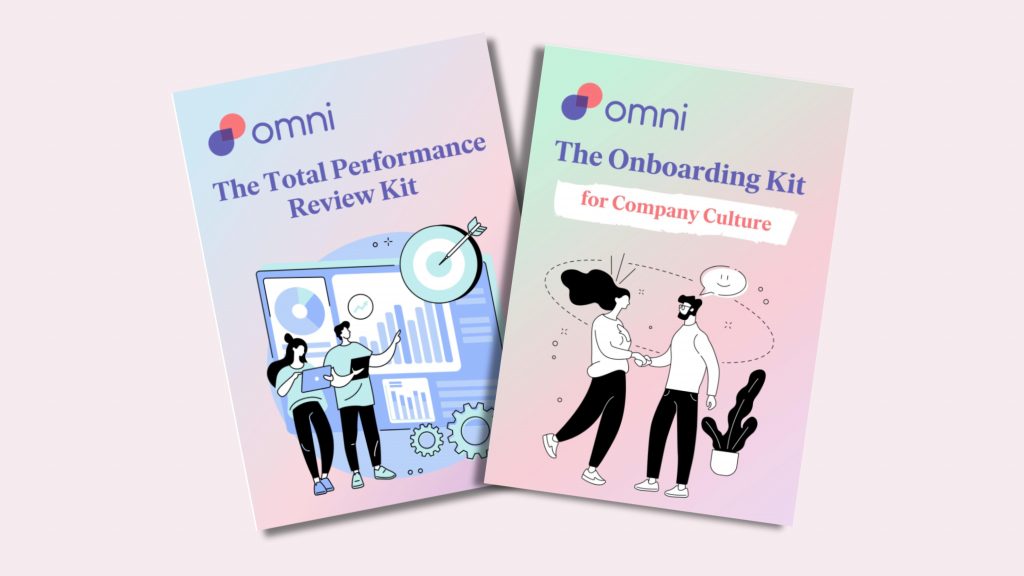Artificial intelligence (AI) has emerged as a game-changer across nearly every industry, revolutionizing processes and enhancing decision-making powers. It’s rocking the boat in a big way — and in every industry, people are scrambling to ride the AI wave.
Although the HR industry has been relatively slower in adopting AI compared to other fields, the landscape is rapidly changing. According to Society for Human Resource Management, HR functions will integrate generative artificial intelligence (GenAI), invest in employee experience (EX) technology, and adopt robust predictive analytics and skills technologies. Aside from that, research suggests that 66% of technology decision-makers will increase investment in EX or human resource technologies in 2024.
In the realm of HR, organizations are beginning to recognize the tremendous potential of AI tools as valuable additions to their existing HRIS and performance management systems. As organizations strive for greater efficiency, accuracy, and employee experience, AI tools in HR are becoming increasingly vital. Here’s how the inclusion of AI into your HR technology stack can impact your organization.
Role of AI Tools for HR Management

From talent acquisition to performance management, learning and development, and employee engagement, AI tools have the potential to transform your HR practices and drive organizational success. With AI tools for HR, you can streamline processes, make data-driven decisions, and create personalized experiences for employees.
Talent acquisition
AI tools have transformed the way organizations attract and identify talent. Traditional recruitment processes involve manually screening dozens (sometimes hundreds) of resumes, making it time-consuming and prone to bias.
AI-powered algorithms can quickly analyze resumes, match candidate profiles with job descriptions, and identify the best-fit candidates. Plus, this automation not only saves time but also ensures a more objective and efficient recruitment process, removing the chance for internalized bias in recruiters.
Robotic process automation (RPA)
HR departments often face a multitude of repetitive and mundane tasks that consume significant time and effort. AI-driven RPA enables HR professionals to automate these processes.
From data entry to form processing and employee record updates, RPA minimizes errors, reduces administrative burden, and allows your HR team to focus on more strategic initiatives, such as talent development and employee engagement.
Performance management
AI tools for HR provide People departments with the ability to collect and analyze large amounts of data to gain actionable insights into employee performance. By leveraging AI, HR professionals can establish objective performance metrics, identify skill gaps, and provide personalized feedback.
AI-powered performance management systems enable real-time monitoring, continuous evaluation, and data-driven decision-making, leading to more effective performance management practices.
Learning and development
AI-driven employee performance data allows organizations to tap into the unique needs of their workforce, enabling them to offer personalized and adaptive training experiences. By analyzing your employee data and preferences in real-time, HR can offer timely and precise learning and development (L&D) opportunities to promote employee growth. This not only enhances employee skills and knowledge but also promotes a culture of continuous learning within the organization — a cornerstone of employee engagement and retention.
Employee engagement
Maintaining high levels of employee engagement is fundamental to your organization’s success. AI tools for HR, such as chatbots and sentiment analysis, enable your HR department to better understand employee needs and concerns.
AI tools for HR allow for personalized communication, provide timely support, and address employee queries. By leveraging AI to streamline impactful processes such as employee onboarding, HR teams can provide consistent and engaging experiences while saving considerable time for strategic matters. In turn, this results in improved employee satisfaction, higher engagement levels, and a positive work environment.
How AI Benefits HR Departments
In addition to the specific use-cases we mentioned above, AI tools for HR bring several other benefits to HR departments, allowing you to pursue your goals of efficient and effective workforce management.
Better decision-making
AI tools provide data-driven insights, allowing you to make informed decisions across many different HR functions. From recruitment to talent development, AI-powered analytics support strategic and impactful decision-making, free from human error and bias.
Faster and personalized talent management
AI automates time-consuming manual tasks, such as candidate screening and welcoming new employees to your work culture, resulting in faster and more efficient talent acquisition processes.
Plus, AI tools for HR enable more personalized experiences — something that would require unsustainable time and maintenance for most HR departments. This better caters to individual employee needs and preferences, which enhances employee satisfaction and retention.
More efficient and effective employee training
AI-powered insights allow HR to offer targeted training content, personalized recommendations, and adaptive learning experiences to their employees.
This ensures that employees receive the right training at the right time, leading to improved skills development, increased productivity, and better performance outcomes.
3 Key Features of AI Tools for HR
When it comes to incorporating AI into your HR practices, choosing the right tools for your organizational needs is the first step. To help you navigate the wide array of options available, we’ll highlight three key features to consider when determining the right AI tools for HR management.
These features offer your organization the opportunity to streamline processes, enhance performance, and develop a culture of engagement.
- Onboarding automation software: This software automates the onboarding process, including document management, task assignments, and employee orientation. It ensures a seamless and consistent onboarding experience, reduces administrative burden, and fosters early engagement and productivity.
- Performance management software: AI-powered performance management software facilitates goal setting, real-time feedback, and performance evaluation. It provides a comprehensive view of employee performance, enables ongoing communication, and supports data-driven performance reviews, resulting in fair and transparent performance management practices.
- Employee engagement platforms: These platforms leverage AI to monitor employee sentiment, facilitate employee feedback, and provide personalized communication channels. They promote a positive work environment, encourage collaboration, and strengthen employee engagement, fostering a sense of belonging and loyalty within the organization.
How to Implement AI into Your HR Practices

Implementing AI into your HR practices requires careful planning and a structured approach. By following these key steps, you can ensure a smooth integration and maximize the benefits of AI tools for HR.
Assess your needs and pain points
Before implementing AI into your HR practices, it is crucial to assess your HR department’s needs and pain points.
Take time to identify areas where AI can bring the most significant value, such as automating repetitive tasks, improving data analysis capabilities, or enhancing employee engagement. By understanding your specific needs, you can align AI tools with your HR objectives and ensure a targeted implementation.
Educate and train staff
To ensure a successful integration of AI into your HR practices, it’s important to educate and train your HR staff on the technology you’ll be leveraging and its potential benefits.
Offer training programs or workshops to familiarize HR professionals with the tools, their functions, and how they will benefit your organization and shape HR workflows.
Start with small-scale pilots
When integrating AI tools for HR, start with small-scale pilots. Select specific HR functions or processes to pilot AI tools and assess their effectiveness in a controlled environment. It’s best to choose functions that are less consequential, such as sending an automated email or creating a test performance review, before leveraging the system for higher HR functions.
This allows you to test the feasibility, understand the impact, and gather feedback from HR professionals and employees. By starting small, you can mitigate risks, optimize implementation strategies, and build confidence in the capabilities of AI tools before scaling up across the entire HR department.
4 AI Tools for HR Management
AI-powered tools offer immense potential for HR departments. Let’s delve into these transformative AI tools for HR and discover how each can empower your HR department to thrive in the digital age.
Omni
Omni is an all-in-one HR tool that frees HR teams from administrative cycles by automating the entire end-to-end employee lifecycle, allowing HR to redirect their time to strategic work that drives business growth.
With Omni’s AI algorithm, you can gain access to data-driven insights that empower informed decision-making on talent acquisition and performance management. Aside from that, integrate your existing employee favoured systems seamlessly, making your entire onboarding and employee engagement process more efficient.
Eightfold AI
Eightfold AI is an AI-powered talent intelligence platform that helps organizations optimize their talent acquisition process. Leveraging machine learning and natural language processing, Eightfold AI automates candidate sourcing, screening, and matching.
The platform uses AI algorithms to analyze resumes, identify relevant skills and qualifications, and provide personalized recommendations for job openings. With Eightfold AI, HR departments can streamline their talent acquisition efforts, improve candidate quality, and make data-driven hiring decisions.
Culture Amp
Culture Amp is an employee feedback and engagement platform that uses AI and sentiment analysis to gather real-time feedback from employees. Through pulse surveys and other feedback mechanisms, Culture Amp enables organizations to understand employee sentiments, identify areas of improvement, and foster a positive work environment.
With Culture Amp, HR departments can enhance employee engagement, drive organizational culture, and make data-backed decisions to improve employee satisfaction.
Degreed
Degreed is an AI-driven learning experience platform that offers personalized employee training and development. By leveraging AI algorithms, Degreed analyzes employee skills, preferences, and learning history to curate personalized learning paths.
With Degreed, organizations can provide tailored training content, recommend relevant courses, and empower employees to continuously upskill and grow professionally.
Revolutionize Your HR Management
Embracing AI tools for HR management is a powerful strategy to enhance efficiency, accuracy, and employee experience within organizations. By integrating AI into HR practices, organizations can optimize talent acquisition, streamline performance management and promote employee engagement.
If you’re after efficiency in your HR processes, but not quite ready to take the leap into AI, check out Omni’s free and easy to use Onboarding for Company Culture template for a fully customizable guide to increasing employee engagement, or our comprehensive Performance Review Kit to champion employee performance management.

If you’d like to learn more about how Omni’s all-in-one HR software automates the entire end-to-end employee lifecycle, saving People leaders from administrative tasks and increasing organizational innovation,


